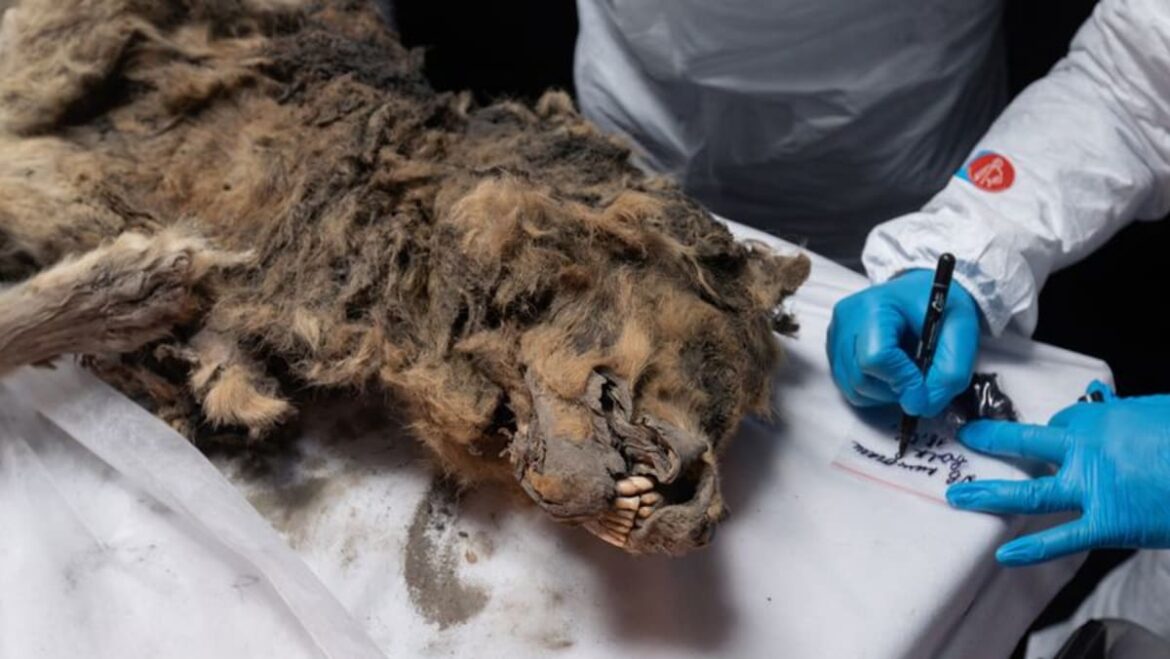Russian scientists conduct autopsy on 44,000-year-old permafrost wolf carcass
YAKUTSK, Russia : In Russia’s a ways northeastern Yakutia region, local scientists are performing an autopsy on a wolf frozen in permafrost for spherical 44,000 years, a gain they talked about changed into once the first of its kind.
Chanced on by probability by locals in Yakutia’s Abyyskiy district in 2021, the wolf’s body is purely now being neatly examined by scientists.
“Here is the realm’s first discovery of a leisurely Pleistocene predator,” talked about Albert Protopopov, head of the division for the watch of gargantuan fauna on the Yakutia Academy of Sciences.
“Its age is about 44,000 years, and there possess by no manner been such finds sooner than,” he talked about.
Sandwiched between the Arctic Ocean and in Russia’s Arctic a ways east, Yakutia is a limiteless region of swamps and forests spherical the size of Texas, spherical 95 per cent of which is lined in permafrost.
Frosty weather temperatures in the region were acknowledged to fall to as little as minus 64 degrees Celsius (-83.2°F)
“In total, or no longer it is the herbivorous animals that die, salvage caught in swamps, freeze and attain us as a whole. Here is the first time when a wise carnivore has been came across,” talked about Protopopov.
While or no longer it is no longer irregular to gain millenia-frail animal carcasses buried deep in permafrost, which is slowly melting due to the climate commerce, the wolf is special, Protopopov talked about.
“It changed into once a if truth be told active predator, regarded as one of many bigger ones. A little bit smaller than cave lions and bears, but a if truth be told active, mobile predator, and it changed into once also a scavenger,” he added.
For Artyom Nedoluzhko, style director of the paleogenetics laboratory on the European College of St Petersburg, the wolf’s stays provide a rare insight into the Yakutia of 44,000 years ago.
“The first operate is to attain what this wolf fed on, who it changed into once, and the scheme in which it relates to those extinct wolves that inhabited the northeastern phase of Eurasia,” he talked about.
Source: Reuters


